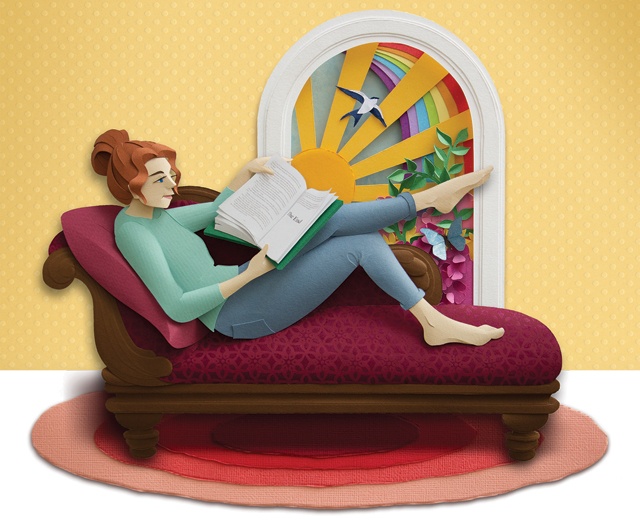I crave feel-good books, and I’m a fool for a happy ending. A book crammed with front-to-back good humor, I cannot resist, and I try to write the same kind of books for middle-grade kids.
Reading or writing books about upbeat characters is my idea of a fine time. After all, we are what we read, and we are the educators of our own personalities.
I prefer not to spoil my own reading or writing time with miserable or depressing characters who seem to be saying, “Life sucks and then you die.” And, from my point of view, feel-good books are getting harder and harder to find. I avoid books about addiction and suicide, and tell-alls about dysfunctional families, but those books sometimes seem to get more attention than more lighthearted books. Maybe literary critics and book reviewers believe that writers who create lighthearted books are having too much fun.
As a writer for middle-grade kids, I’ve watched unpleasant and depressing books muscle into and take over a hefty chunk of the market in the young reader’s book world. And if one should feature a vampire or the son of a vampire, then the sky’s the limit.
Some might say this is sour grapes on my part because I don’t have the stomach to claw my way into—much less finish writing—anything dark or edgy even if I tried. But if I could, I’d find it way past dreary to spend my writing life with a bunch of depressing characters. Besides, I grew up thinking vampires were scary and about as sexy as Frankenstein or that guy who sneaked in during poor Janet Leigh’s shower in the film “Psycho.”
That’s OK—I don’t have to read or write that way. But just when I’d accepted the reputation as the World’s Greatest Book Wimp, I discovered Alexander McCall Smith and his books for adults and children, and I took heart.
McCall Smith, a man known to provide delightful company in person as well as in print, is admired by readers in every corner of the world. He tells interviewers that he, too, loves upbeat books with happy endings. He even says that he needs them. (Ah, don’t we all?)
This internationally known writer also puts his considerable money where his mouth is and writes books that leave readers feeling that life is good; sometimes hard, but still good. His books, though benign, handle thorny or difficult issues in humane, civilized and even quirky and humorous ways.
So let’s take heart, all of us readers who are fools for feel-good books. Comb our libraries and bookstores until we find them, and cling to the wisdom that says “there’s life without vampires.”
I cross my heart and promise any parent who feels uneasy about dark and edgy reading for their children to keep writing feel-good books for young readers. Today, when horror, fear, frenzy, discord and cynicism prowl our world, I pledge that I will lather my books with hope. I will not infect them with dark and edgy, and as for vampires, I’d be too scared to even try without a scarf around my neck and a really high collar for protection.
Critics might call these feel-good books “escape reading,” but escape reading can be good. Kids need it and so do we adults. I believe feel-good books are good for our immune systems and that they nourish and promote good health. They’re as good for us as bear hugs and belly laughs.
Emily Dickinson said it best:
“Hope is the thing with feathers
That perches in the soul
And sings the tune without the words
And never stops at all.”
——————–
Juddi Morris of Gainesville has written 11 children’s and young adult books.


